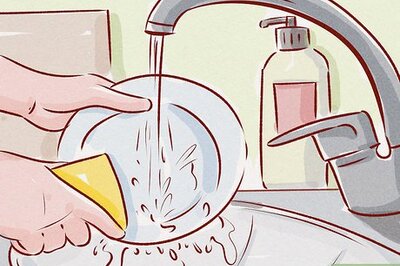
views
CUTTACK: The lawyers have joined devotees and public in protesting the Jagannath Temple Administration’s decision to do away with the traditional ‘Paramanik darshan’ inside the sanctum sanctorum of the temple. They have moved the Revenue Divisional Commissioner (RDC) and Chief Administrator of the temple at Puri against the decision under Rule 9 of the Orissa High Court Public Interest Litigation Rules, 2010. The members of All Orissa Lawyers’ Association, Bar Council and High Court Bar have demanded lifting of the prohibition since it was illegal and violated the civil and constitutional rights of the devotees to have darshan of Lord Jagannath. The ‘Satwalipi’ (RoR) of Jagannath Temple states that Paramanik darshan inside the ‘Garba Gruha’ is permissible thrice a day during ‘Mangala Ararti’, ‘Abakash’ and ‘Chandanlagi’. “This is a legal right of the devotees, flowing from the law, emanating from the RoR, which has been framed in consonance with the constitutional guarantee of the freedom of religion under Article 25 of the Constitution. The temple administration cannot interfere in such recorded right,” Bar Council member Chinmay Mohanty said. Mohanty said Paramanik darshan was a restricted and well-coordinated exercise, which enabled the old, infirm and physically-challenged to set foot inside the sanctum sanctorum and seek blessings of the Lord. The ‘Sahan Mela darshan’, allowed twice a day inside the sanctum sanctorum, witnesses a rush of thousands of devotees and thus deprives the old and the physically-challenged from having darshan. “It is an irony that thousands are allowed inside in an disorderly manner amid crammed situations in the Sahan Mela tradition while the regulated activity, allowing limited people at one time, is prohibited. This is a clear case of discrimination against the special class of devotees, who though have an equal right of darshan, are deprived of it due to their physical deficiency,” Mohanty stated. The representation is in compliance with the HC PIL Rules that stipulate exhaustion of all channels and communication with the authorities concerned before filing a PIL. If no step is taken, a petition would soon be filed in the High Court.
















Comments
0 comment